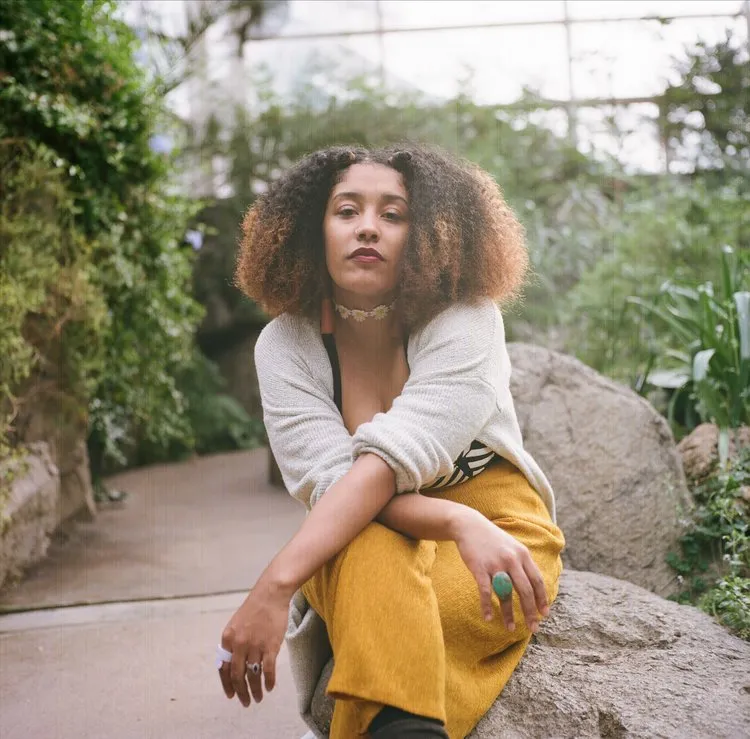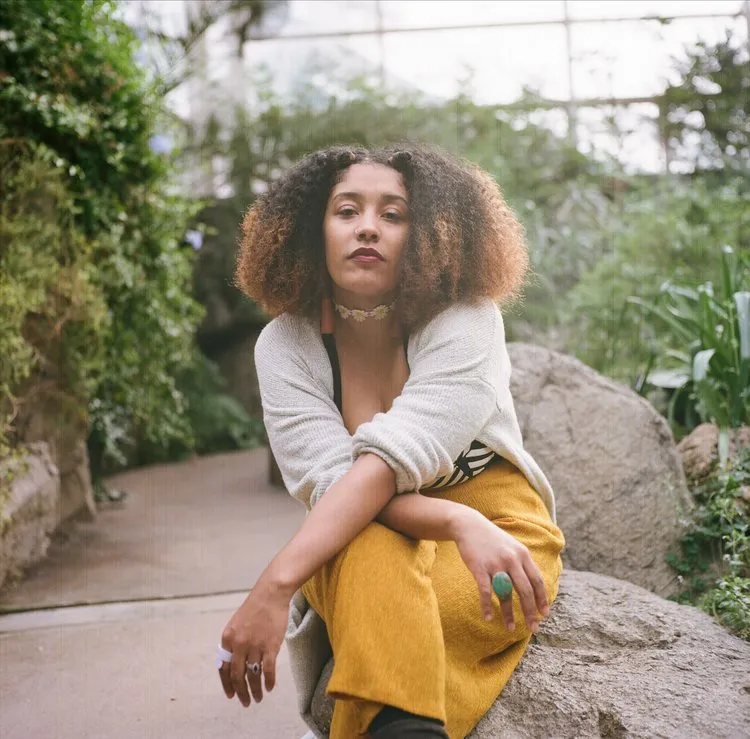
Image via Suhaly Bautista-Carolina of Moon Mother Apothecary and Black Magic
Suhaly Bautista-Carolina is a serial entrepreneur whose mind is ever-connecting outside and between many boxes. Bautista-Carolina is of AfroDominican descent and is an herbalist, artist, educator, and community organizer with impressive experience from The Met, Brooklyn Museum, and as the Director of Public programs at the American LGBTQ+ Museum (opening in New York City, 2026).
As an innovator and startup leader, Bautista-Carolina launched Moon Mother Apothecary in 2017, a plant-based herbalist healing company decolonizing the healthcare system and supporting the activism work of many in the movement. She has since also launched Black Magic, an Afrofuturism book club that explores and integrates the learnings from the stories of many Afrofuturist storytellers, including Octavia Butler.
Her desire to constantly expand the impact of her ideas into the tapestry of intersecting movements, communities, programming, and even in decolonizing our healthcare system makes her one of the most captivating and innovative thinkers of our time.
Read on to learn how this founder is paving new pathways for her communities through her companies, and get inspired to think about shaping your startup in a whole new, impactful way.
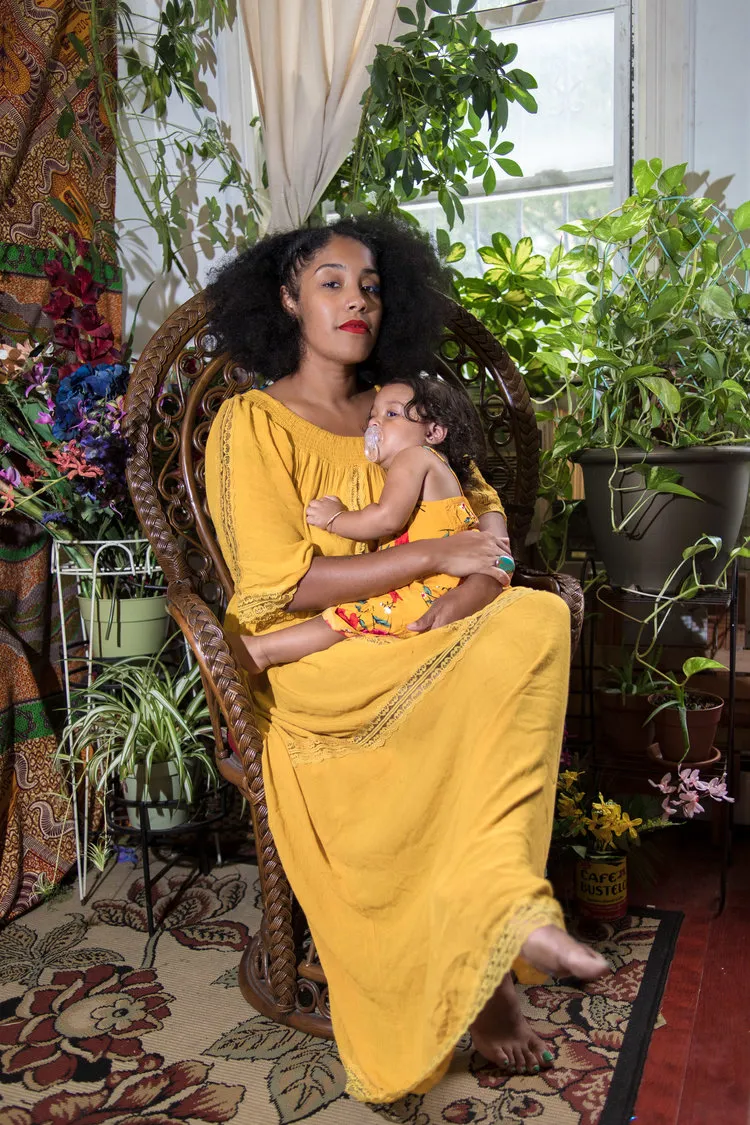
Image via Suhaly Bautista-Carolina of Moon Mother Apothecary and Black Magic
digitalundivided: You have varied interests and a strong background in many disciplines. How did you combine all your goods, especially in a world that pushes us to specialize?
Suhaly Bautista-Carolina: That’s an emergent process, right? I’m still learning to integrate all my interests and identities into my work.
I also believe in something other than the myth of a single narrative story. I watched many people when I was growing up who had many interests. My mother was a restaurant owner, entrepreneur, and arts and cultural worker. She was a community organizer. She was many things, and so was my father. The sport of basketball was also a massive part of our lives. Growing up, there were lots of different things going on that we always felt passionate about. There was never a directive or a singular pathway mandate in my household. I’ve carried that with me in my life, especially as someone who believes in interdependence and interconnectedness and trying to find the threads and throughlines in all of the things that I do and all the practices I own.
So, it’s not that I’m perfect. I’m still learning how I bring my herbalism practice into my arts and cultural work or how I get the lessons I’ve learned in museums to my herbalism practice and vice versa. I also have new interests all the time. I allow myself to be as expansive as I imagine and think of everyone around me as boundless. That has allowed me to push into spaces and interests that may not make sense to someone else thinking about me as, like, needing to have a singular story. But it makes sense to me.
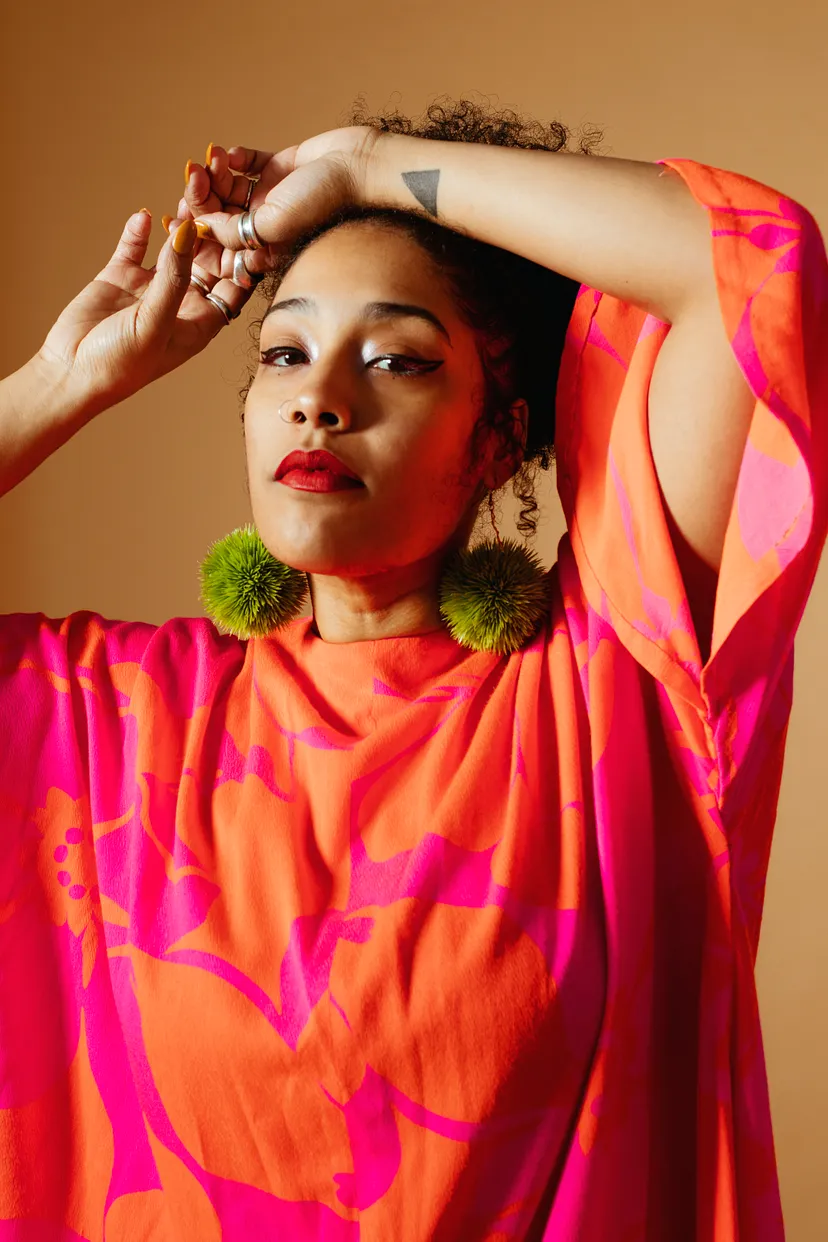
Image via Suhaly Bautista-Carolina of Moon Mother Apothecary and Black Magic
digitalundivided: What inspired you to start Moon Mother Apothecary?
Suhaly Bautista-Carolina: I’ve always been drawn to plants, herbs, and the natural world. I tell this story a lot. But I was born and raised between two major urban parks in Manhattan — my mom lived on Central Park West, and my dad lived on Riverside Drive. I spent a lot of time in those parks. I grew up in them. I have my favorite trails, my favorite trees, my favorite hills, and nooks and crannies. I watch the way my child, Luna, has her same sort of favorite places.
I also like to debunk the myth that folks from big cities, New York City, or urban jungles — I’m doing air quotes right now — don’t have connections to nature. Connections to nature are very intuitive relationships that we’re all born with.
I engaged in a lot of sustainability work in college and stayed tethered to the environment and herbalism. It kept showing up in my life. I realized I should pay attention to it because it was a calling that I wanted to respond to. I signed up for the Sacred Vibes Apothecary Apprenticeship with Karen Rose. I was pregnant with my first child, Luna, when I started the program. So, I was on this herbalism journey, but I was also simultaneously on this journey into motherhood. My daughter was born in 2017. Moon Mother Apothecary was born in 2017.
digitalundivided: How you approach commerce in your startup is unique and intentional. Can you explain your approach?
Suhaly Bautista-Carolina: When I first started Moon Mother, it was very much about how I could serve the people I love. Much of that concerns how I think about justice, impact, and the intersection of people and plant power.
Yet particularly during the pandemic, when many of us were feeling helpless and hopeless, that was an opportunity for me to pivot further away from consumerism and this transactional relationship with medicine. That’s the direction that, to me, makes me feel purposeful. I started to think of plant medicine as a tool for liberation, as a tool for justice. Imagine how we can show up with plants and plant medicine to support (civil rights) movement work.
I called upon herbalists I know who share the same values as me. We started meeting multiple times weekly to imagine our offerings around the city. We collectively created formulary. Formulary are recipes in the plant medicine world. They are formulas mixed to achieve the intended goals for a person’s mind, body, and spirit. So, like anti-anxiety medicine, sleep medicine, and even soothing salves for the skin and body. We raised money collectively through mutual aid efforts and crowdfunding, then made, bottled, and labeled medicine to distribute at protests and vigils all across the city during the summer of 2020. That was powerful.
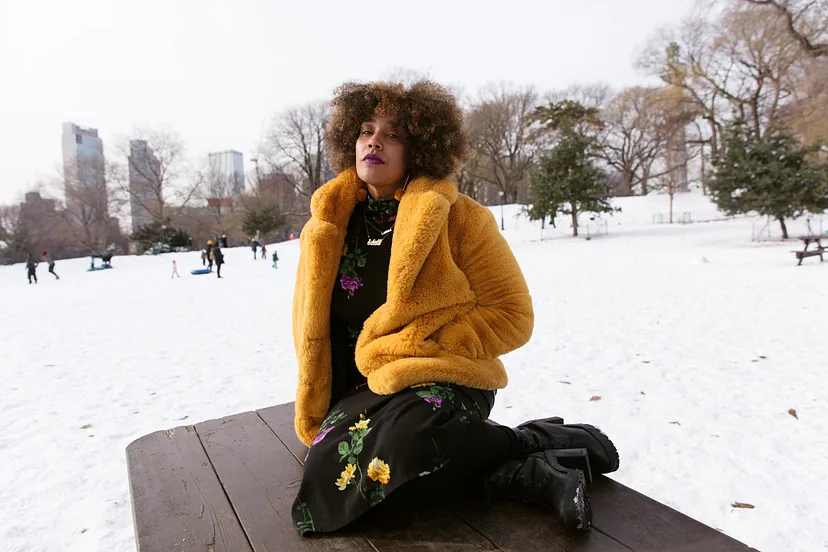
Image via Suhaly Bautista-Carolina of Moon Mother Apothecary and Black Magic
digitalundivided: What role does decolonizing medicine play in your work at Moon Mother Apothecary?
Suhaly Bautista-Carolina: The colonial mind believes you can only access something if you have the resources to buy it with money. Plant medicine is about ensuring people can access what they need, even if they don’t have the financial resources to pay for those medicines. There are other ways to show up, such as bartering, for example. Different forms of being in the world that are not related to money. Part of decolonization is thinking about how we return to our indigenous practices of being in a community together, serving one another, being part of the work, and being part of the harvest.
We also live in a capitalist system that devalues herbalism. There is no certification for herbalists in the US. The perception of herbalism is that it is of less value than Western medicine, which is invalid. Many Western drugs borrow from or co-opt from indigenous medicinal plant medicine practices. On top of that, there’s also a misconception that herbalists think you should not take Western medicines. But there’s such a harmony between science and herbs and plants and art — all interconnected. Again, it’s not one or the other; there is balance and peace in the wellness world. Everybody is unique and needs different things. Adding plants to your life enhances your experience on the planet, indeed. It opens a portal to understanding your ecosystem. That plants can do in this body, or what they can do in that body, will always vary.
Decolonizing in the plant medicine world looks many different ways, and there are many ways to practice decolonization in this field. But those are just some ways I encourage people to look at this practice.
digitalundivided: Pivoting the topic a bit, we rarely get to interview entrepreneurs with varied backgrounds. Tell us more about Black Magic Book Club and your passion for Afrofuturism.
Suhaly Bautista-Carolina: It’s extraordinary because yesterday was Octavia Butler’s birthday. And the summer solstice — a very cosmic day. The energy of that day lingers.
I’ve always loved fantasy and consider myself a futuristic-thinking individual. And I fell in love with Afrofuturism through the work of Octavia Butler. Many people around me were also interested in Octavia’s work. As someone dedicated to building community — it’s something that crosses all of the categories of my work in the arts, in herbalism, as a community member, in all of my lives, the community is very much at the center. So, I thought, why don’t we read together? Then we have each other to talk to.
I decided to create this book club. At first, it was very much just the homies. A bunch of us would get together at my house or in a bookstore, just discussing Butler’s books. Over the years, it grew. We had dinners inspired by Afrofuturism, convenings, a virtual book club during the pandemic. It just ballooned into this sacred and loving community of folks who loved and wanted to learn from Afrofuturism. We are contributing to discussions about climate change and holding ourselves accountable to ensuring that we are ready for imminent disaster and all these conversations in Afrofuturism. Particularly in Octavia Butler’s work, we see the impact of her thinking in real time.
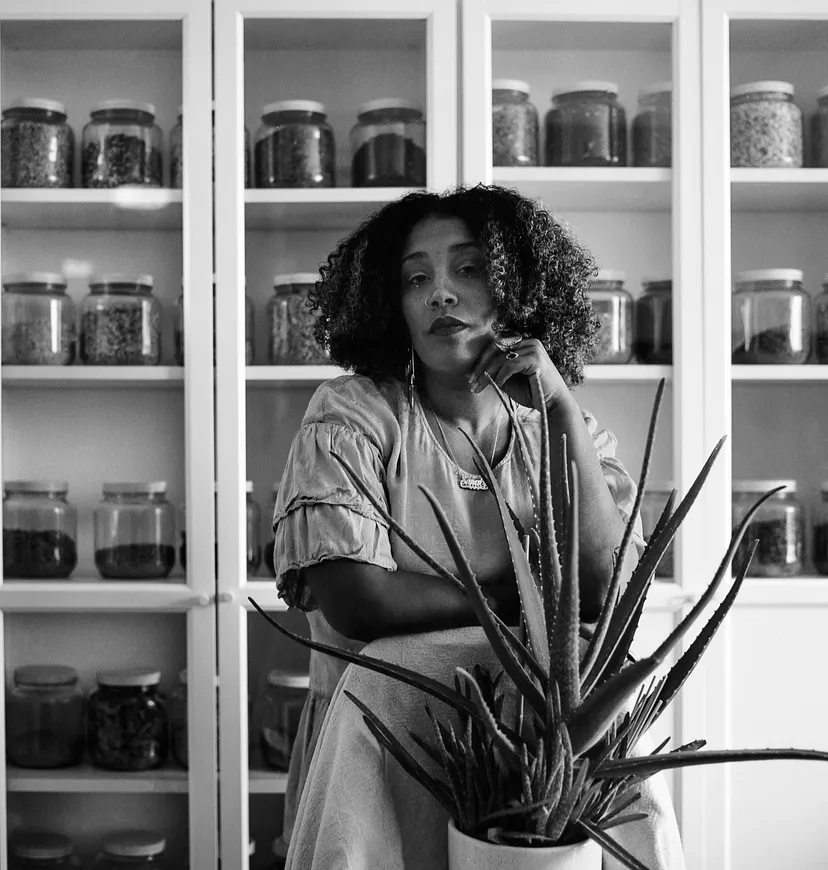
Image via Suhaly Bautista-Carolina of Moon Mother Apothecary and Black Magic
digitalundivided: How can people get involved in your work?
Suhaly Bautista-Carolina: I’m in this dreaming moment with Moon Mother. I want to create experiences and portals for people to enter into plant medicine in a freeing, playful, and noncommittal way. Plant medicine has changed my life, and I want to ensure that plant medicine is accessible to as many people as possible through my work. You don’t have to go through a three-year program to learn how to care for yourself, your nervous system, your body, or your skin. I want to create other opportunities for people to enter this practice without committing all their time, money, or resources to this study, which can be a barrier for many.
You can find me on socials via @MoonMotherApothecary. My events, programs, workshops, and knowledge shares are listed on my website, moonmotherapothecary.com. We also have a newsletter called The Last Quarter, which features upcoming events, programs, and opportunities to get medicines for BIPOC mutual aid efforts and many other happenings.
[Editors note]: This interview has been lightly edited from its original transcription.

